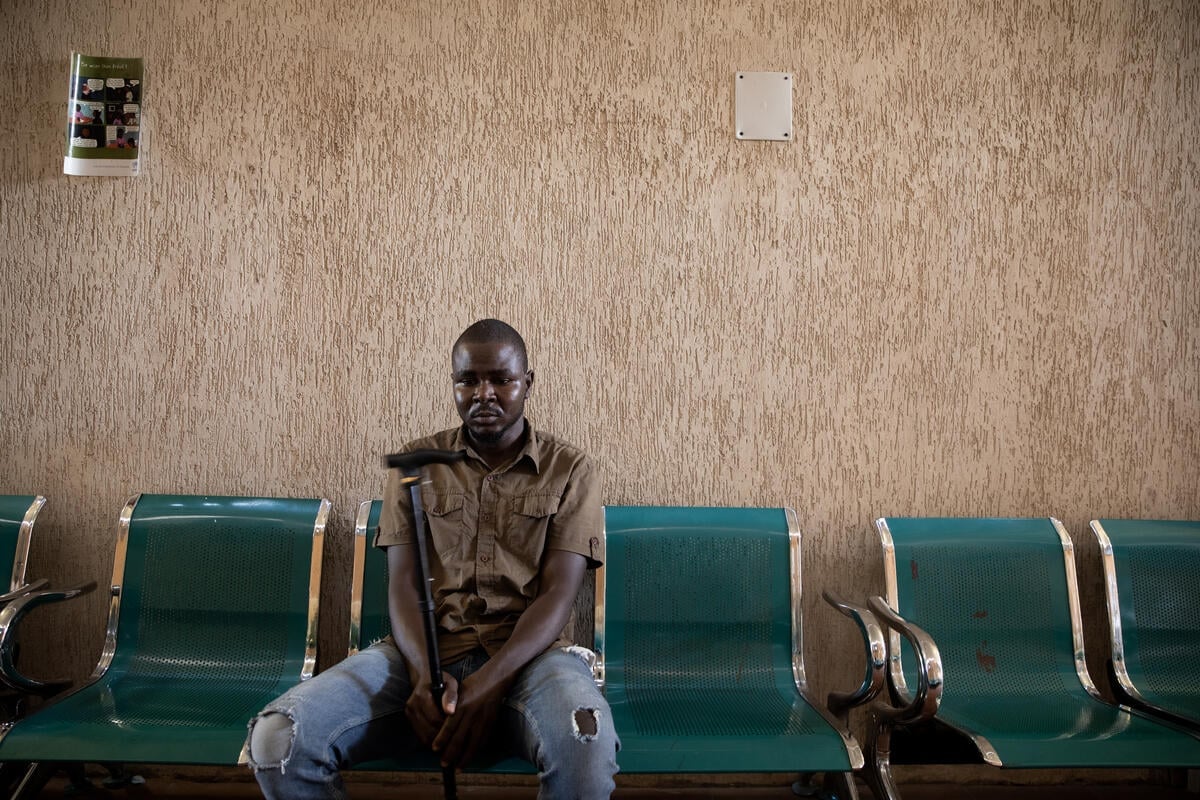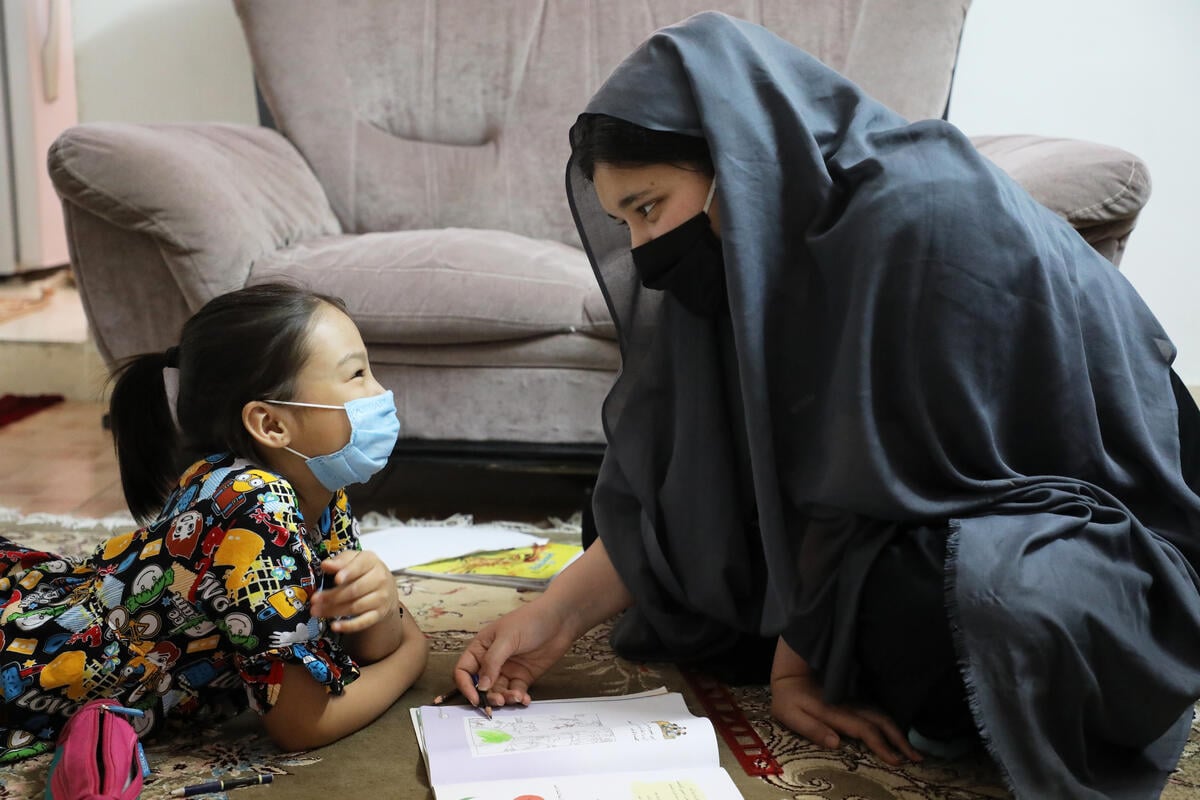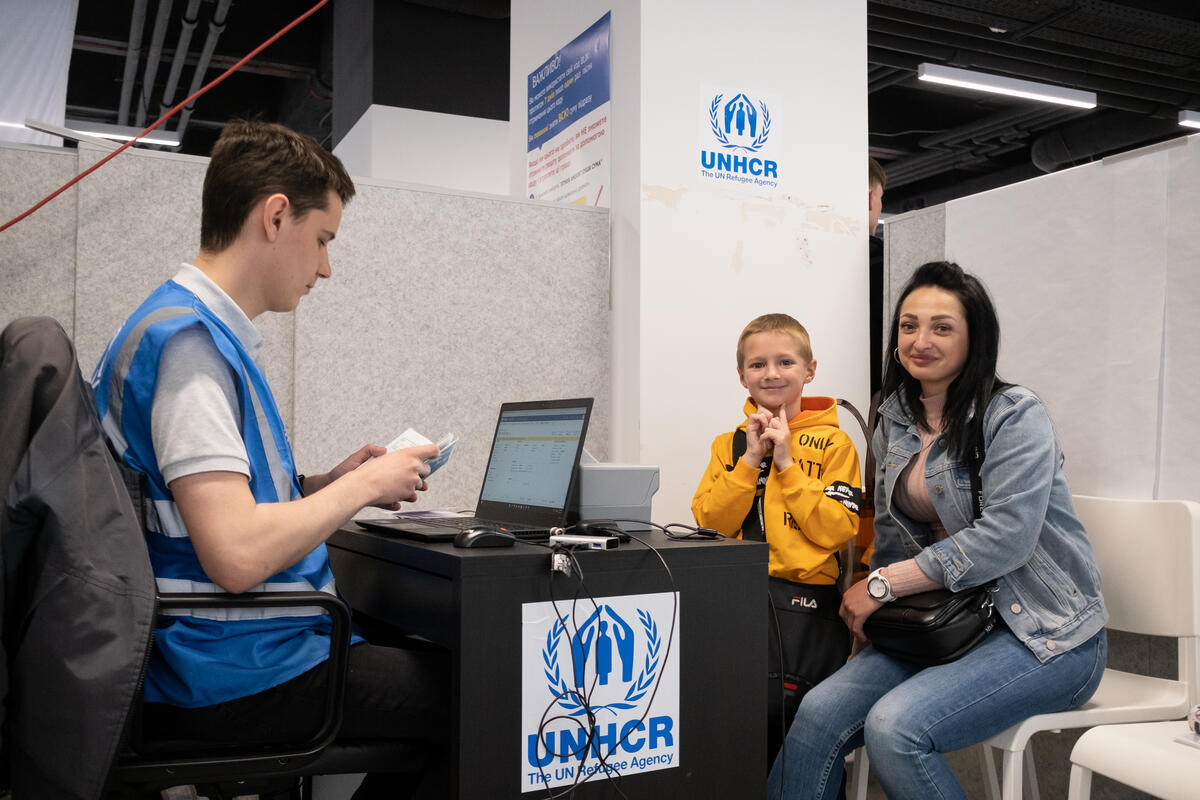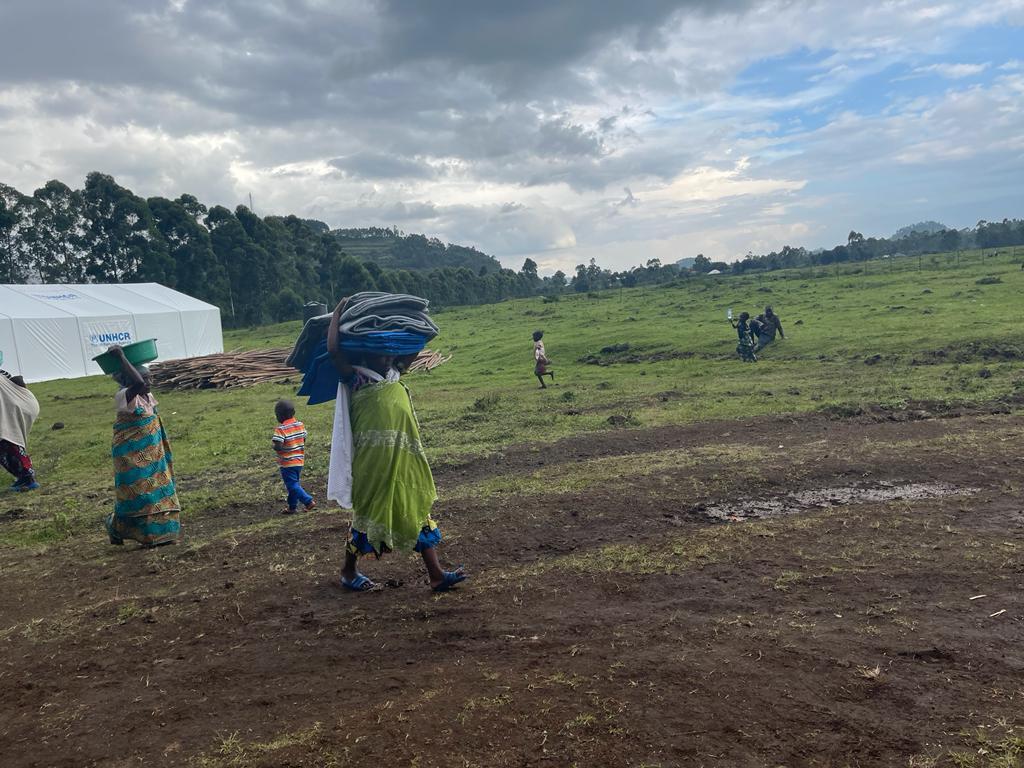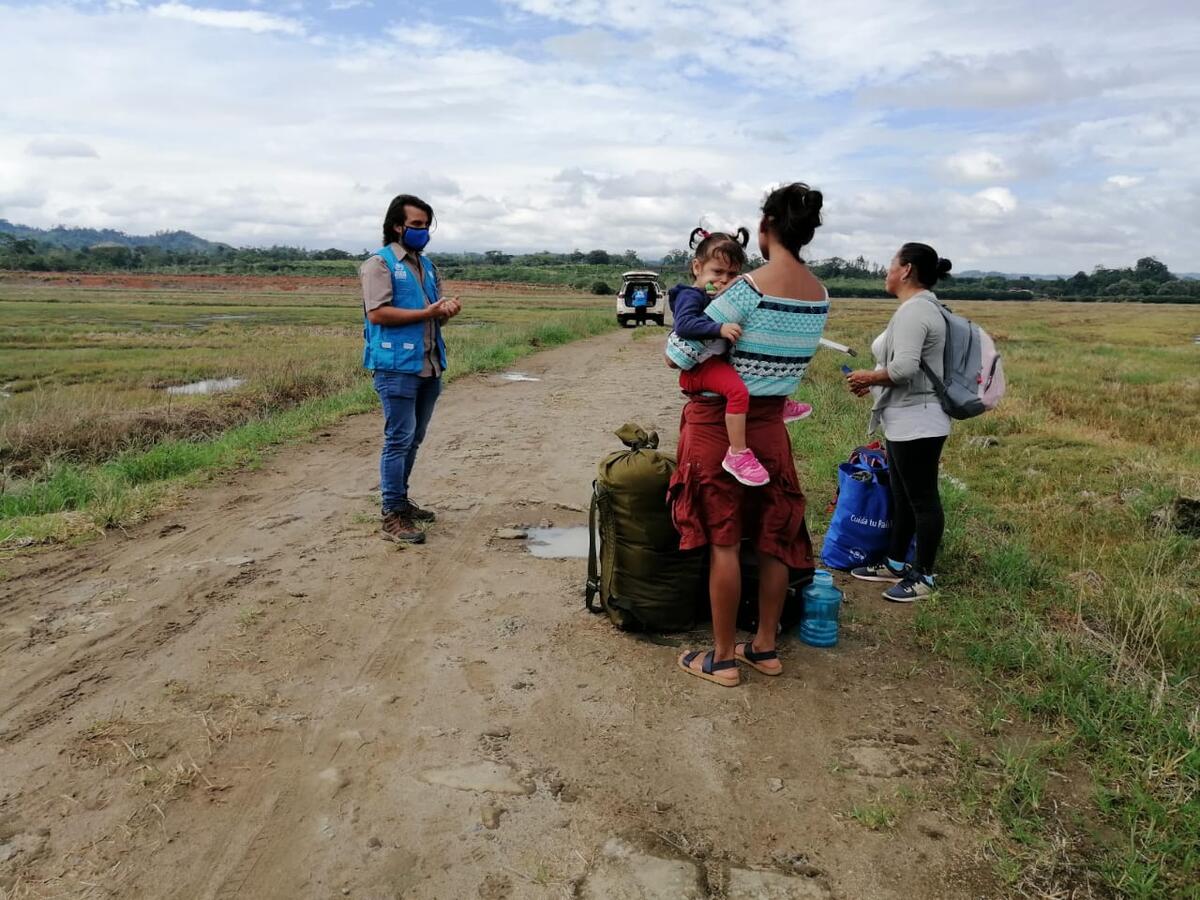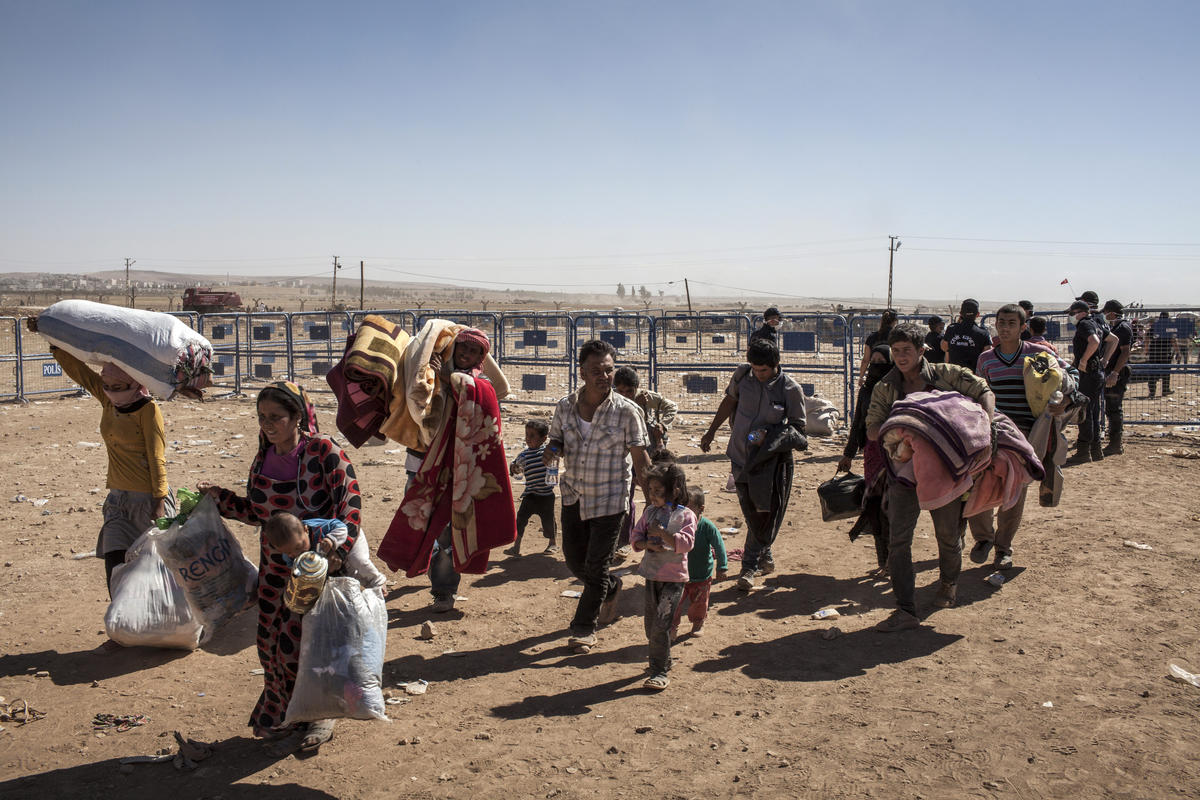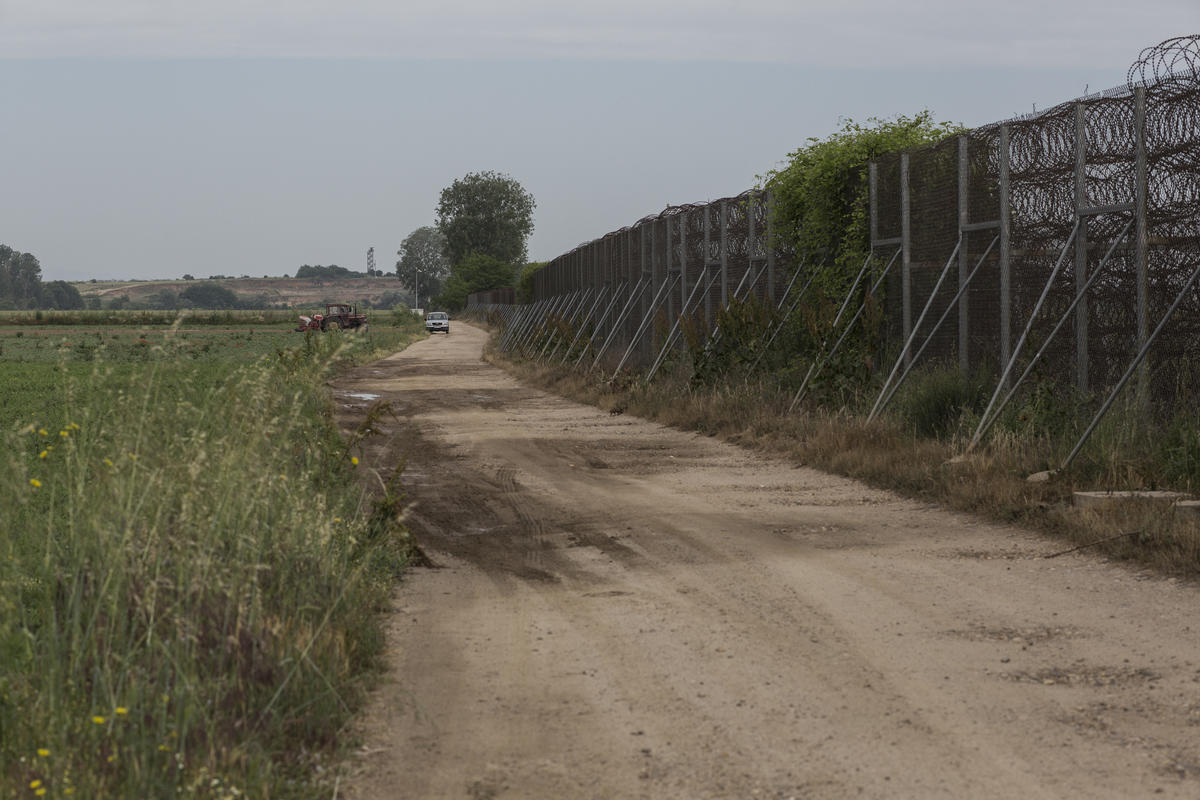Morjane offers Kyrgyzstan support to protect Uzbek asylum seekers
Morjane offers Kyrgyzstan support to protect Uzbek asylum seekers

BISHKEK, Kyrgyzstan, June 27 (UNHCR) - The UN refugee agency's Assistant High Commissioner, Kamel Morjane, has ended his three-day visit to Kyrgyzstan by pledging support for the government to continue protecting 444 Uzbek asylum seekers amid rumours of impending deportations.
Morjane travelled to Kyrgyzstan on Saturday at the request of UN Secretary-General Kofi Annan and High Commissioner for Refugees António Guterres, who, together with High Commissioner for Human Rights Louise Arbour, have raised serious concerns about the fate of nearly 500 people who fled Uzbekistan in the wake of violence in Andijan on May 13.
During his visit which ended Monday, Morjane met senior Kyrgyz officials, including Acting President Kurmanbek Bakiev, Foreign Minister Roza Atunbaeva and National Security Council Secretary Niyazov. He also visited the Uzbek asylum seekers in Sasyk camp in western Kyrgyzstan.
The Assistant High Commissioner said he appreciated and sympathised with the Kyrgyz, who received the Uzbeks during a sensitive transitional period following a change of regime and shortly before the general elections. He acknowledged the difficulties the government faced in protecting the group, and offered UNHCR's unwavering support in finding an appropriate solution in line with international norms. Accelerated refugee status determination was already in place but needed to be sped up even more, he added.
However, Morjane warned that international understanding did not extend to actions taken in defiance of international law, and reiterated High Commissioner Guterres' pronouncement that there was a red line beyond which the authorities should not venture. This would apply in particular to forcible return, or refoulement, which is prohibited under both the 1951 Refugee Convention and the Convention Against Torture. Kyrgyzstan is a signatory to both instruments.
The expulsion on June 9 of four asylum seekers to Uzbekistan was a serious violation of this principle, and remains of serious concern because no international entities have been allowed access to the four. Their fate is unknown, as the wife of one of the deportees tearfully told Morjane. The Assistant High Commissioner discussed this issue with the authorities, who condemned it and promised to investigate the circumstances surrounding it.
President Bakiev reiterated his pledge to not forcibly return any genuine refugees to Uzbekistan. Morjane welcomed this reaffirmation, but stressed that the refugee determination process needed to be fair and transparent, and with the possibility to appeal decisions.
The Assistant High Commissioner noted that all traditional durable solutions options - voluntary repatriation, local integration and resettlement - should be explored. However, UNHCR could not support voluntary repatriation in the absence of guarantees for the safety of returnees, which would include international access to areas of return. While UNHCR welcomed a suggestion to explore a tripartite repatriation mechanism together with Uzbekistan, it stressed that Uzbekistan would have to demonstrate its good faith by allowing such access before this could be seriously considered.
Visiting the Uzbek asylum seekers in Sasyk camp, Morjane was struck by their precarious condition. While their material needs were taken care of, their personal security was under imminent threat. Uzbek security forces appeared to have access to the site, and rumours from several quarters indicated that these forces were planning to storm the Osh detention centre near the border in order to nab 29 asylum seekers detained there.
In light of such conditions, Morjane broached the possibility of emergency resettlement to third countries. He promised the Kyrgyz authorities that he would raise this with likely resettlement countries, including during a meeting with ambassadors in Bishkek.
During his meeting with the asylum seekers, the Assistant High Commissioner was impressed by their sincerity and peaceful nature. While he could not exclude that a minority may have committed violent acts, both his impressions and the status determination interviews to date would seem to confirm that the vast majority of this group can be considered refugees.


